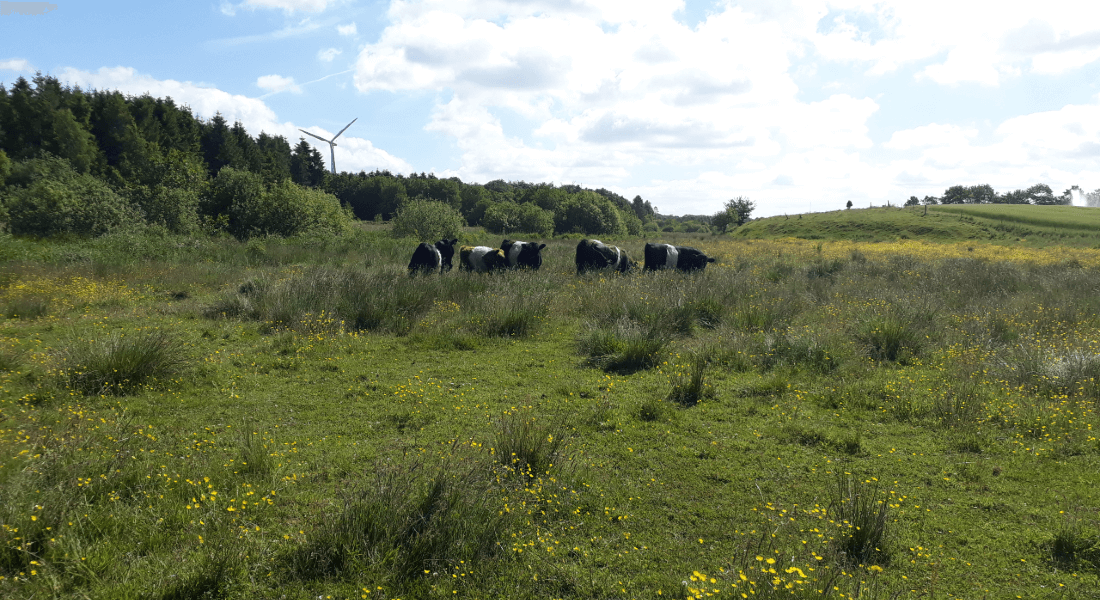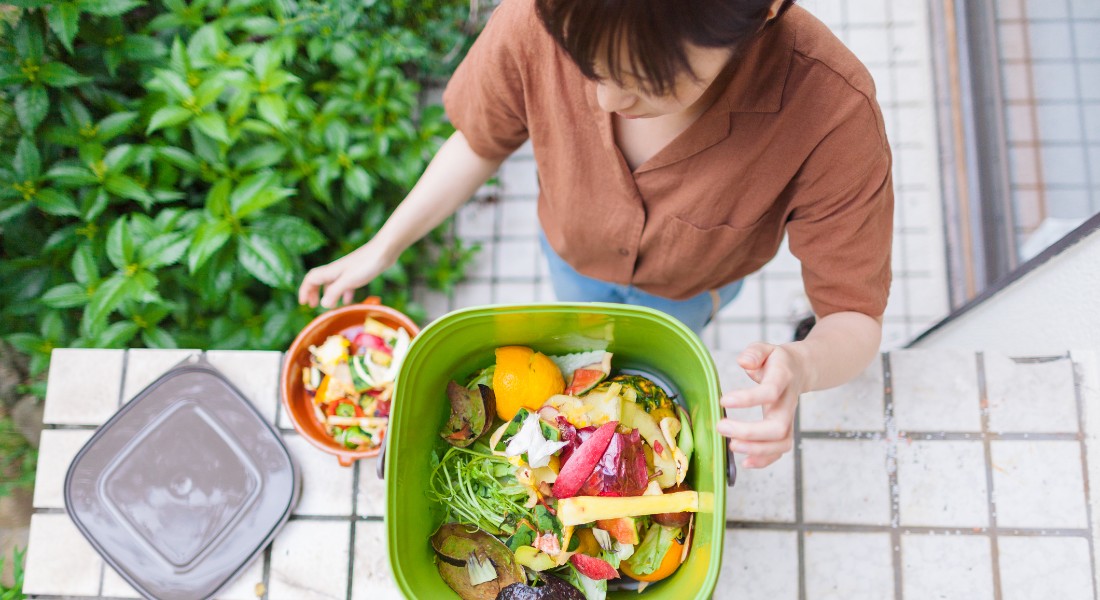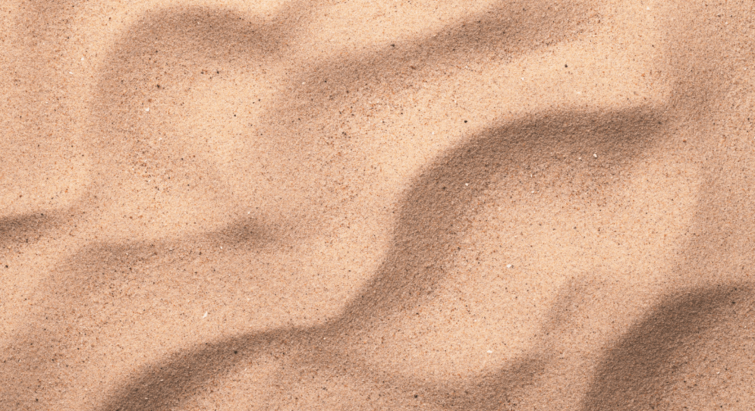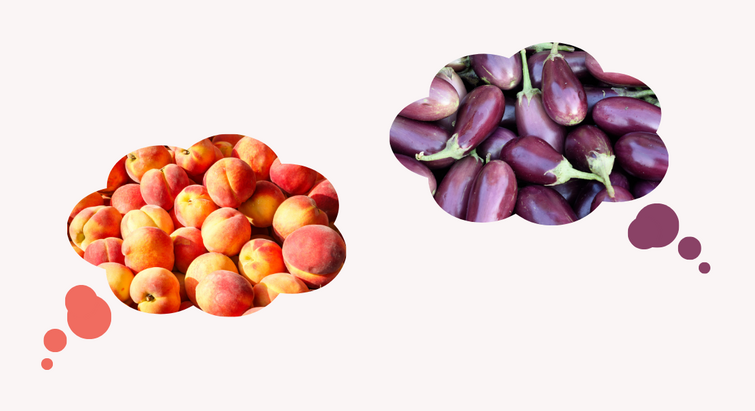
Your organic waste will be upcycled to fertilise fields
Researchers behind a major EU project will develop technologies that make it easier to convert organic waste in our compostable trash bags into fertiliser. UCPH researcher says that agriculture sector needs to tackle climate concerns with sustainable solutions.

According to an array of international researchers involved in a new EU project, the time has come to innovate more sustainable crop fertilisation solutions. Why not use what we have at our fingertips, or more specifically, under the kitchen sink— organic waste.
"European cities produce more than 100 million tonnes of organic waste annually. However, the vast majority of countries manage their waste poorly or inefficiently. This leads to greenhouse gas and ammonia emissions that damage our climate and health, among other things. It would be brilliant if we could develop improved and more efficient ways to upcycle waste, into fertiliser for example," states Professor Lars Stoumann Jensen, head of the large research project, FertiCycle.
Up until 2023, and along with 16 European research institutions, fertiliser companies and trade associations, Lars Stoumann Jensen will be studying how to transform gnawed apple cores, spent coffee grounds, smashed eggshells and other organic odds and ends into sustainable fertilizers.
Away with environmentally harmful excess nitrogen and phosphorus
Most European farmers currently fertilise their fields with commercial fertilizers made of synthetic nitrogen, phosphorus and potassium. While this cocktail is great for our plants, its production leaves a negative climatic and environmental footprint. Professor Jensen explains:
"Producing synthetic nitrogen requires large amounts of natural gas and thereby puts a strain on climate. Furthermore, plants absorb far from all of the phosphorus that we use in commercial fertilizers. Much of the excess winds up as runoff which flows into lakes, rivers and eventually, the sea. It pollutes and is a poor use of a resource that eventually slips away."
Organic kitchen waste in compostable trash bags naturally contains all 14 essential plant nutrients, including potassium, nitrogen, phosphorus, iron and sulphur, needed for crops to grow. Thus, it is a perfect alternative to the commercial fertilizers produced using climate-harming fossil fuels. Professor Jensen explains:
"After being routed to a biogas plant, where it can be used to produce climate-neutral energy, the waste can be converted into a dried fertiliser product suitable for being spread over fields," he says, adding:
"But Mr. and Mrs. Smith shouldn’t be the only ones sorting their waste correctly and sending it to biogas plants. We will also use industrial leftovers, such as yeast leftovers from breweries or pharmaceutical production, the juice from potato starch production, slaughterhouse waste and other types of leftovers from foodstuffs producer, as well as agricultural slurry.”
Up and running in Belgium and the Netherlands
In countries like Belgium and the Netherlands, green waste gold is already being used for grain and vegetable farming. Both countries have regions with intensive food production and are equipped to handle large quantities of manure and bio-waste.
While our large biogas plants in Denmark could easily convert more of our organic waste into these types of fertilisers, the method is rarely used here. Lars Stoumann Jensen explains that:
"This is probably due to the fact that it is expensive to convert organic waste into easy-to-use fertilisers and because many farmers who have access to slurry don’t consider it economically advantageous to purchase these types of products. As a result, we don’t use the essential nutrients in all of our waste streams to the best of our ability."
According to Professor Jensen, it is essential that we find better ways to sustainably exploit the waste and slurry that we already have. In conclusion, Jensen says:
"For example, technology could be developed which easily converts slurry into a type of fertiliser that would help optimize its use and pollute less. Furthermore, we must communicate that by using our waste better, farmers will have access to safer, more sustainable fertilisers which help to ensure that heavy metals and other undesirable substances are not spread. In the end, consumers will benefit from cleaner foods and nature as well.”
Topics
Related News
Contact
Lars Stoumann Jensen
Professor
Department of Plan and Environmental Sciences
University of Copenhagen
lsj@plen.ku.dk
+45 21 22 20 39
Ida Eriksen
Journalist
Faculty of Science
University of Copenhagen
ier@science.ku.dk
+45 93516002
Who and why FertiCycle?
- FertiCycle accords with the EU's new Fertilising Products Regulation that enters into force in July of 2022. The regulation will ensure that all fertilisers—both traditional and new recirculated waste-based fertilisers—fall under the same regulation and contribute to the development of a circular EU economy, while ensuring that more sustainable fertilisers are used in the EU.
- Research has demonstrated that Earth's phosphorus reserves are limited and will eventually be depleted. The study of alternatives to phosphorus fertilisers is imperative.
- Among FertiCycle’s project partners are the fertilizer organisations Fertilizers Europe and S.C.A.M. Furthermore, a number of universities are affiliated with the project, including the University of Copenhagen and Aarhus University.
How is FertiCycle funded?
- The research project is funded by the Marie Skłodowska-Curie programme, the longest-running EU research support programme.
- Fifteen PhD students from around the world have recently been recruited to work on the project.


